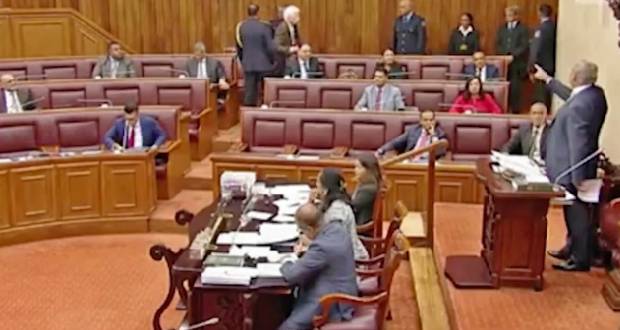Publicité
In the interest of the country
Par
Partager cet article
In the interest of the country

Il est temps que je me repose, Je suis terrassé par le sort Qui a bien travaillé avant l’aurore Peut s’en aller avant le soir (Les Contemplations de Victor Hugo)
In the era of decolonization many African countries gave up the written constitutions that the former colonial powers bequeathed to them. In the case of Mauritius the British heritage has remained intact because the Constitution, although not etched in gold, was well orchestrated to keep a plural society from disintegrating. Apart from a few important amendments – I count the introduction of the referendum as the most important one – our constitution has stood the test of time. Forty six years in the life of a new state is a significant length of time.
The British unwritten constitution is the easiest to amend in the world as any constitutional bill can be passed with a simple majority. However, given their unparalleled democratic culture, there have been very little legislative activity in that respect. If every now and then we hear a few voices of discontent over the role and continued relevance of the monarchy, this is a far cry from fundamental changes. In any case the Constitution of Mauritius, approved by Order in Council in London, owes much to the genius of Professor S.A de Smith. From his bust in The Pamplemousses Botanical Garden, he must be wondering what the fuss is about and why none of our political leaders thought of laying a wreath on his monument or depute our High Commissioner to do so on his tomb in London? I shall invite our leaders to meditate near his bust in the quiet of the garden on whatever constitutional changes they are contemplating.
I started this article by citing a few verses from one of Victor Hugo’s poems. I suggest it is applicable to a fair number of our political leaders who have made a meaningful contribution to the socio-economic development of the country and who will mar that contribution if they persist to stay in power. A time comes when the onset of age commands a slowing down of our activities so that we can enjoy the few years of our lives that remain. Is it not time to pass our vast knowledge to the younger people who are endowed with energy and creativity? This country is in need of urgent transformational change that requires younger and more dynamic people at the helm. Our job should be to train them and move out of their way. Our acquired wisdom can be shared with the new leaders.
Like the founders of a family business, it is quite heart-rending to find hundreds of shareholders and their managers taking over. But this is how life goes. Leaders of parties should not cling to their leadership roles. Sooner or later they will be replaced. Jules Koenig was replaced by Gaetan Duval and the party was re-invigorated, Now, Xavier-Luc has taken over. He may not have the charismatic personality of his father but he is intelligent, hardworking and goes about his job without fanfare.
We therefore rejoice that a number of new political parties are emerging, and some led by dynamic women. This augurs well for the future. However, they must beware of the pitfalls which too ambitious people may fall into and they should screen their adherents, assembling as far as possible people who will work, not for their own pockets but for the people of Mauritius without any discrimination.
However, it is important that they let us have their political manifestos as early as possible for our compatriots to digest and to decide whether they will give their support to their vision of tomorrow.
Any new party will be unlikely to succeed unless they reflect on a few important points which have exercised our minds recently;
(1) Should our state declare in the Constitution that it is a sovereign democratic and lay state?
(2) Apart from removing the abhorrent reference to which community the candidate belongs immediately, do we need further constitutional changes?
(3) If the answer to (2) is yes, should not the proposed changes be incorporated in the political manifestos?
(4) Given our financial situation and our foreign debts, how much are we prepared to spend on the legislature and the political executive?
(5) Do we need to say “enough is enough to the mismanagement of State land?
(6) Should our political parties be registered so that there may be more control over their inner dealings?
(7) How best to finance the political campaigns of parties and their candidates from public funds?
(8) Propose a mechanism for preventing double voting.
(9) Strengthen our institutions by appointing competent and independent-minded people at their heads .
(10) Encourage the Electoral Boundaries Commission to do its work according to the Constitution.
Publicité
Les plus récents






